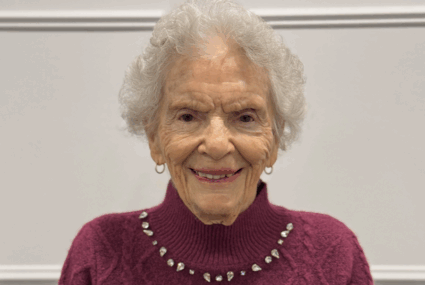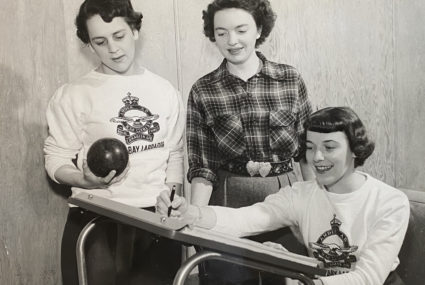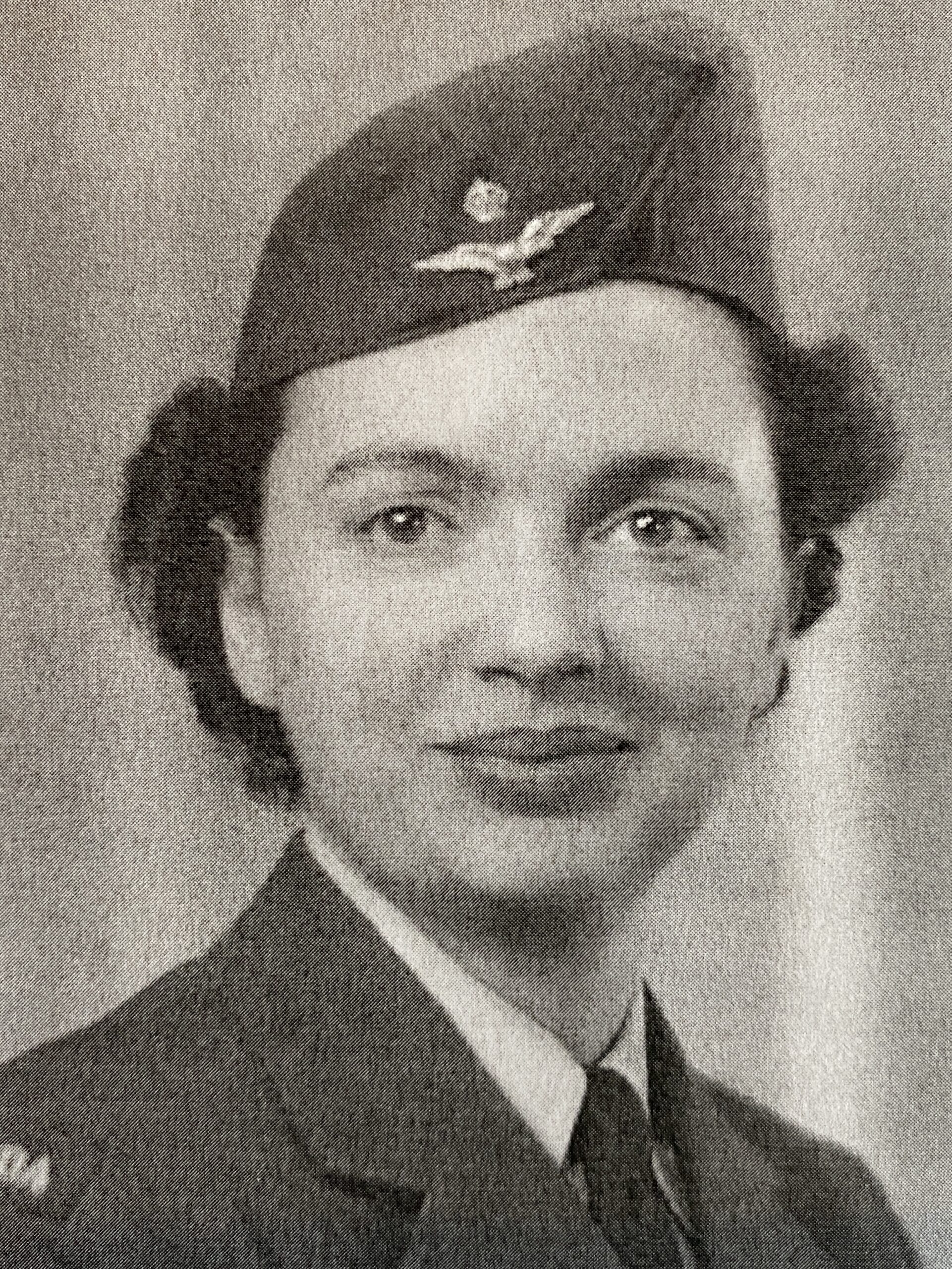Each year on Remembrance Day, we pause to honour the courage and sacrifice of those who served our country during wartime. Stories of bravery on the frontlines often make the headlines—but behind the scenes, countless others played vital roles that kept nations running and spirits strong. One of those unsung heroes is Brenda Swinton, a 99-year-old resident of The Waterford Seniors’ Community in Tsawwassen, whose quiet courage and resilience reflect the strength of an entire generation.
Born in 1926 in Hull, England, Brenda was just a girl when the Second World War began. She was briefly evacuated to the countryside but soon returned home—despite the ongoing bombings.
“The bombs did come, but we had a shelter,” she remembers. “I had a different perspective on war then. To look at something when you’re 16 versus when you’re 90 is different. I didn’t think a lot about it then; I tried to close my mind against it.”
As a teenager, Brenda joined the Women’s Land Army, an organization of women who kept farms and food production going while men were away fighting.
“There weren’t any men around,” she laughs. “Women had to keep the home fires burning.”
The work was tough—long days spent weeding, lifting hay, milking cows, and driving tractors—but she took it in stride.
“It wasn’t glamorous,” she admits. “But I liked the outdoors, and I enjoyed it.”
When her mother immigrated to Canada, 17-year-old Brenda made the bold decision to follow her across the Atlantic in the middle of the war.
“It was a dangerous journey in the middle of winter,” she recalls. “I was the only woman on board.”
She fondly remembers Christmas 1944, when a Royal Navy escort ship sent over a Christmas tree by pulley to the passenger vessel. “We sang carols and had a decent meal. It was a good Christmas.”
After earning her degree at the University of Toronto, Brenda joined the Royal Canadian Air Force.
“I thought it might be an adventure,” she says. “If you had a university degree, you got a commission right away. I worked as an assistant to the Admin Officer—mostly pushing paper.”
Her postings took her to remote and rugged places, including Goose Bay, Labrador, where the only way in or out during winter was by plane.
“It was very isolated,” she recalls. “We bowled, played games, danced, and watched movies they brought in for us. There was no TV, so we made our own fun.”
Later posted to Bagotville, Quebec, Brenda’s life took a romantic turn. While disembarking from a train in full uniform, she met another officer, Gordon Swinton.
“We had breakfast together,” she smiles, “and six months later, we were married.”
Her time in the RCAF ended soon after—
“I got pregnant. In those days, if you got pregnant, you were discharged.”
After the war, Brenda and Gordon settled in Vancouver, where they raised their family and built a life together.
Out of the 1.1 million Canadians who served, fewer than 30,000 remain today. Brenda—now 99—is one of them.
“When I look back now,” she reflects, “I realize how lucky I was—and how much we all did together.”
This Remembrance Day, we honour Brenda and the millions like her—ordinary people who lived through extraordinary times, shaping the peace we enjoy today.
PHOTO: Brenda (middle) and the RCAF bowling Team on base in Goose Bay, Labrador




Comments